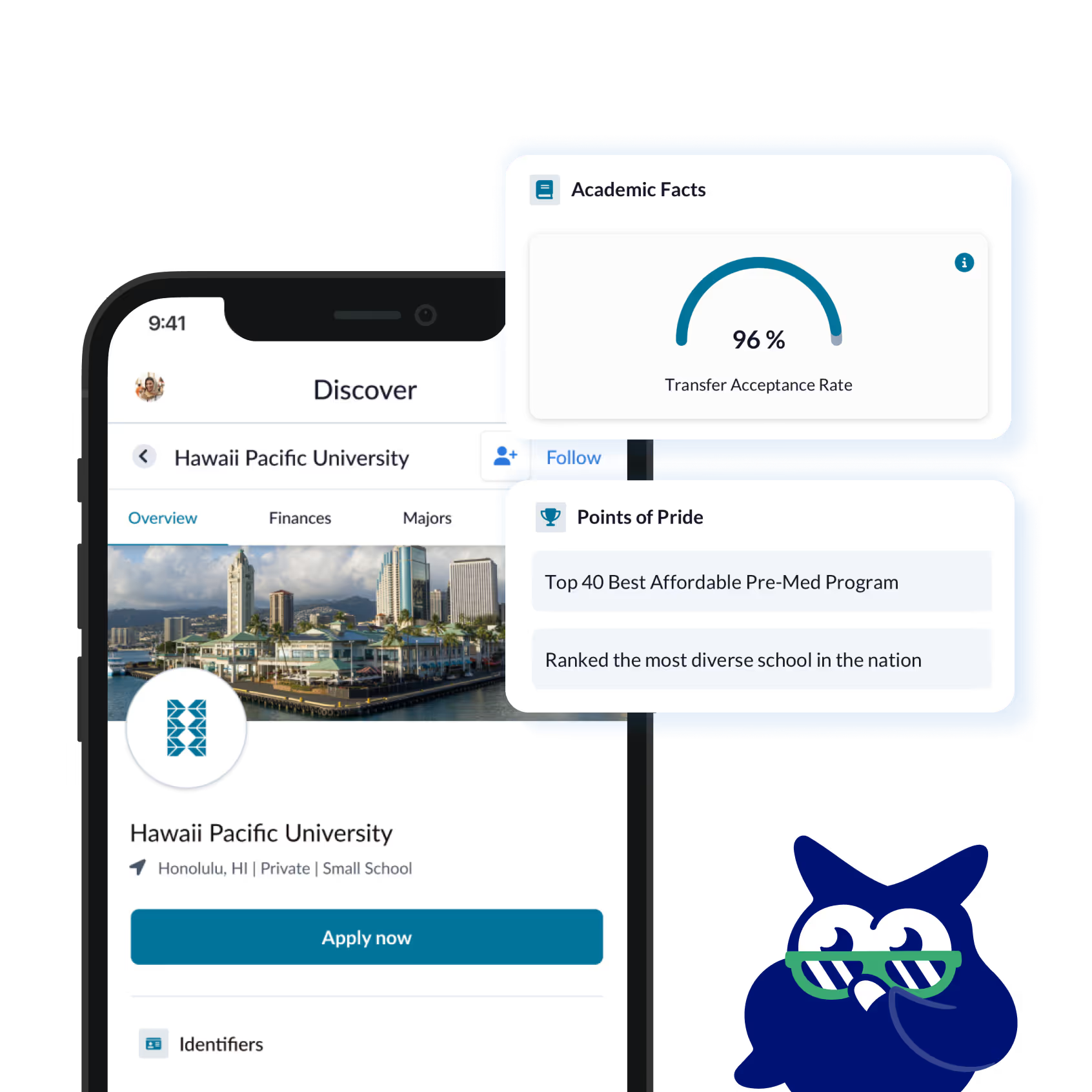What Is an Associate’s Degree: Everything You Should Know


What Is an Associate's Degree?
An associate degree is a postsecondary degree typically requiring two years of full-time study to complete. These degrees are primarily offered by community colleges, junior colleges, technical colleges, and some online universities. Most associate degree programs require approximately 60 semester credits, which translates to about 20 courses.
Associate degrees combine general education courses with specialized coursework in a specific field. The general education component typically includes classes in mathematics, science, English, humanities, and social sciences, providing students with a well-rounded educational foundation. The specialized courses focus on the student's chosen field of study, offering practical knowledge and skills relevant to their academic and career goals.
Admission Requirements for Associate Degree Programs
One of the advantages of associate degree programs is their accessibility. Most programs have the following requirements:
- Age requirements: Typically 18 years or older, though some programs accept younger students
- Educational prerequisites: High school diploma or GED equivalent
- GPA requirements: Vary by institution, but generally less stringent than bachelor's programs
- Placement tests: Some institutions require basic skills assessment in reading, writing, and mathematics
Many community colleges have open enrollment policies, meaning they accept all eligible applicants regardless of past academic performance. This makes associate degrees more accessible than bachelor's programs, which often have competitive admissions processes.
The application process for associate degree programs is typically straightforward:
- Complete an online application
- Submit high school transcripts or GED scores
- Take any required placement tests
- Meet with an academic advisor to select courses
- Register for classes
Types of Associate Degrees
Understanding the different types of associate degrees can help you choose the program that best aligns with your goals. The main types include:
Associate of Arts (AA)
The Associate of Arts degree focuses on liberal arts, humanities, social sciences, and business. The curriculum typically includes:
- A strong foundation in general education courses
- Electives that allow students to explore various subjects
- Courses that develop critical thinking, communication, and analytical skills
Popular AA programs include business administration, education, psychology, and communications. These degrees are designed for students planning to transfer to bachelor's programs, particularly in liberal arts fields.
Associate of Science (AS)
The Associate of Science degree focuses on science, mathematics, and technical fields. The curriculum includes:
- More math and science courses than AA programs
- Laboratory components in many courses
- Technical and analytical skill development
Common AS programs include engineering, computer science, nursing, and other STEM fields. AS degrees prepare students for both transfer to bachelor's programs and direct entry into technical careers.
Associate of Applied Science (AAS)
The Associate of Applied Science degree is career-focused and designed to prepare students for immediate entry into the workforce. These programs emphasize:
- Practical, technical, and vocational skills
- Hands-on training and experiential learning
- Industry-specific knowledge and competencies
Popular AAS programs include paralegal studies, automotive technology, culinary arts, and healthcare technology. While these degrees are career-oriented, some credits may still transfer to bachelor's programs for students who decide to continue their education later.
Other Associate Degree Types
Less common associate degree types include:
- Associate of Applied Arts (AAA): Focuses on applied knowledge in creative fields
- Associate of Fine Arts (AFA): Specializes in visual or performing arts
- Associate of Forestry (AF): Concentrates on forestry and natural resource management
- Associate of Occupational Studies (AOS): Emphasizes occupational training in specific industries
Each of these specialized degrees serves particular career paths and educational goals.
Cost and Financial Considerations
One of the most compelling reasons to pursue an associate degree is cost-effectiveness. According to the American Association of Community Colleges, the average tuition for public in-district community colleges is approximately $4,050 per year. Compare this to the significantly higher costs of bachelor's degree programs, which range from $11,610 per year for in-state public universities to $43,350 per year for private institutions.
Additional expenses to consider include:
- Books and supplies: $1,200-$1,500 per year
- Fees: Vary by institution but typically range from $200-$1,000 per year
- Transportation and living expenses: Vary based on location and living situation
Financial aid options available to associate degree students include:
- Federal Application for Federal Student Aid (FAFSA)
- Federal grants like the Pell Grant
- State-specific grants and scholarships
- Institutional scholarships and work-study programs
- Federal student loans
Many students find that starting with an associate degree before transferring to a bachelor's program is a smart financial strategy. By completing the first two years at a community college, students can save thousands of dollars on their education.
Time Commitment and Program Structure
The typical time commitment for completing an associate degree is about two years for full-time students. However, many students attend part-time while working or fulfilling other responsibilities. In fact, approximately 66% of community college students attend part-time, which extends the completion time to three or more years.
The program structure for associate degrees typically includes:
- General education requirements (30-40 credits)
- Major-specific courses (20-30 credits)
- Electives (0-10 credits)
Most institutions offer flexible scheduling options, including:
- Day classes
- Evening classes
- Weekend classes
- Online or hybrid courses
This flexibility makes associate degrees accessible to students with various life circumstances and commitments.
Associate Degrees vs. Bachelor's Degrees
Understanding the differences between associate and bachelor's degrees can help you determine which path is right for you:
Factor
Associate Degree
Bachelor's Degree
Time Commitment
2 years full-time
4 years full-time
Credit Requirements
Approximately 60 credits
Approximately 120 credits
Cost
Lower ($4,050/year average)
Higher ($11,610-$43,350/year)
Depth of Study
Broader overview
More in-depth specialization
Career Opportunities
Entry-level positions in specific fields
Wider range of career options
Earning Potential
Higher than high school diploma
Higher than associate degree
Associate degrees can serve as foundations for bachelor's degrees through transfer agreements. Many students choose to earn an associate degree first and then transfer to a four-year institution to complete their bachelor's degree. This approach can be both cost-effective and academically advantageous.
An associate degree might be the better choice if you:
- Want to enter the workforce quickly
- Need a more affordable education option
- Are unsure about your long-term educational goals
- Prefer a smaller, more supportive learning environment
A bachelor's degree might be more appropriate if you:
- Plan to pursue a career that requires a four-year degree
- Want to develop deeper expertise in your field
- Plan to pursue graduate education
- Seek higher earning potential long-term
Transferring Credits to Bachelor's Programs
Many associate degree graduates choose to continue their education by transferring to a 4-year university. To facilitate this process, many community colleges have articulation agreements with four-year institutions. These agreements specify which courses will transfer and how they will count toward bachelor's degree requirements.
To maximize transferable credits:
- Work with academic advisors at both your community college and prospective four-year institutions
- Choose courses that align with your intended major at the four-year institution
- Maintain good academic standing (typically a GPA of 2.0 or higher)
- Research and connect with transfer-friendly universities that value your community college experience
- Understand the specific transfer policies of your target institutions
- Complete any required transfer application processes early
Common challenges in the transfer process include:
- Credits that don't transfer or transfer as electives rather than major requirements
- Different general education requirements between institutions
- Varying prerequisite requirements for upper-division courses
- Application deadlines and documentation requirements
- Difficulty discovering universities that welcome transfer students
Planning ahead and staying informed about transfer policies can help you overcome these challenges and ensure a smooth transition to a four-year institution. Resources like EdVisorly can help streamline this entire process through their mobile-first app, you can discover transfer-friendly universities, get clear information about transfer requirements, and connect directly with admissions teams who are actively looking for students like you. The platform makes it easy to plan your transfer journey and even apply to universities in minutes, giving you the transparency and support you need to confidently navigate the transfer process. Think of it like having a transfer fair on your phone every day, helping you find your perfect university match.
Skills Developed Through Associate Degree Programs
Associate degree programs help students develop valuable skills that are highly sought after by employers:
- Communication skills: Written and verbal communication through essays, presentations, and group projects
- Critical thinking: Analyzing information, evaluating arguments, and solving problems
- Problem-solving: Identifying issues and developing effective solutions
- Collaboration: Working effectively in teams and groups
- Technological literacy: Using industry-specific software and digital tools
- Quantitative reasoning: Applying mathematical concepts to real-world situations
These transferable skills are valuable across industries and can contribute to workplace success regardless of your specific career path. Employers consistently rank these skills among their top priorities when hiring new employees.
Career Opportunities with an Associate Degree
Direct Career Entry Options
Many rewarding careers are accessible with an associate degree. Here are some high-demand fields and their median annual salaries according to the U.S. Bureau of Labor Statistics:
- Registered Nurse: $77,600
- Dental Hygienist: $77,810
- Paralegal: $56,230
- Web Developer: $78,300
- Radiologic Technologist: $61,980
- Computer Support Specialist: $57,910
- Physical Therapist Assistant: $61,180
- Respiratory Therapist: $70,540
- Occupational Therapy Assistant: $61,520
- Electrical Engineering Technician: $63,640
These careers offer competitive salaries, good job security, and opportunities for advancement. Many also provide pathways to further education and specialization.
Earning Potential and Job Growth
Associate degree holders earn approximately 19% higher weekly earnings compared to those with only high school diplomas. According to the BLS, the median weekly earnings for associate degree holders is $938, compared to $781 for high school graduates.
The job outlook for associate degree-level positions is promising, with an expected growth of 8.8% from 2021-2031. This growth is driven by several factors:
- Increasing healthcare needs of an aging population
- Technological advancements requiring skilled technicians
- Growing demand for legal and business support services
- Expansion of early childhood education programs
Factors that influence earning potential include:
- Field of study (healthcare and technology typically offer higher salaries)
- Geographic location (urban areas generally offer higher wages)
- Experience (earnings typically increase with years in the field)
- Additional certifications and specialized skills
Alternative Educational Paths
While associate degrees offer many benefits, they're not the only option for post-secondary education. Other alternatives include:
Professional Certificates
- Time commitment: 3 months to 1 year
- Cost: $1,500-$5,000
- Focus: Specific skills for particular jobs
- Career outcomes: Entry-level positions in specific fields
Trade/Vocational Schools
- Time commitment: 6 months to 2 years
- Cost: $5,000-$15,000
- Focus: Hands-on training for specific trades
- Career outcomes: Skilled trades positions (electrician, plumber, etc.)
Boot Camps
- Time commitment: 8-24 weeks
- Cost: $10,000-$20,000
- Focus: Intensive training in tech skills
- Career outcomes: Entry-level tech positions
These alternatives might be more appropriate than an associate degree if you:
- Need to enter the workforce very quickly
- Have a specific skill you want to develop
- Prefer hands-on learning over classroom instruction
- Already have some college education and need to specialize
An associate degree would be the better choice if you:
- Want a broader educational foundation
- Plan to transfer to a bachelor's program eventually
- Seek a balance of general education and specialized training
- Value the credential of a college degree
How to Choose the Right Associate Degree Program
Selecting the right associate degree program requires careful consideration of several factors:
- Career Goals: Research which degrees align with your desired career path.
- Personal Interests: Choose a field that genuinely interests you, as you'll be more likely to succeed and enjoy your studies.
- Transfer Plans: If you plan to transfer to a bachelor's program, research which associate degrees and specific courses will transfer most effectively to your target institutions.
- Program Reputation: Look for programs with good reputations in your field of interest. Research graduation rates, job placement statistics, and accreditation status.
- Accreditation: Ensure the program is accredited by a recognized accrediting body, as this affects financial aid eligibility, credit transferability, and employer recognition.
- Cost: Compare tuition, fees, and available financial aid at different institutions.
- Location and Format: Consider whether you prefer in-person, online, or hybrid learning, and whether the location is convenient for your situation.
- Support Services: Research what academic support, career services, and other resources are available to students.
Questions to ask when researching programs:
- What is the job placement rate for graduates?
- What transfer agreements exist with four-year institutions?
- What support services are available for students?
- Are internships or practical experiences part of the curriculum?
- What is the average class size?
- Are evening, weekend, or online classes available?
Resources for researching and comparing programs include:
- College websites and catalogs
- Campus visits and information sessions
- Current students and alumni
- Academic advisors at community colleges
- Career counselors at high schools
- Online college search tools and databases
Ready to Make Your Transfer Journey Smoother?
If you're considering an associate degree as a pathway to a bachelor's degree, EdVisorly can help make your transfer journey seamless. Our AI-powered platform specializes in helping community college students transfer to 4-year universities with confidence. Download the EdVisorly app to discover transfer-friendly universities, connect directly with admissions teams, and plan your transfer journey with clarity. With EdVisorly, you can navigate the complex transfer process with ease and maximize your associate degree credits when transferring to your dream university.
Frequently Asked Questions
What is a 2 year degree called?
A 2-year degree is called an associate degree. The most common types are an Associate of Arts (AA degree) and Associate of Science (AS). These associate level programs provide foundational education and can serve as stepping stones to bachelor's degrees or direct pathways to in-demand careers.
What is equivalent to an associate degree?
Several credentials are equivalent to an associate degree, including certificate programs that focus on specific skills, professional certifications in technical fields, and some diploma programs from trade schools. These alternatives often emphasize hands-on training and new skills development for immediate career entry.
What is the difference between associates and bachelors?
The main differences are time and depth. Associate degrees take about 2 years and 60 college credits to complete, while bachelor's degrees require 4 years and around 120 credits. Bachelor's programs like a bachelor of arts offer more specialized study and typically lead to higher earning potential and more career advancement opportunities in higher education and beyond.
What is the lowest degree in college?
An associate degree is considered the entry-level college degree. However, "lowest" doesn't mean less valuable—associate degrees open doors to many in-demand careers and provide an excellent foundation for transferring to 4-year universities to pursue bachelor's or even master's degree programs.
What is the easiest associate degree to get?
Rather than focusing on "easiest," consider which associate degree aligns with your interests and career goals. Liberal arts, general studies, and business administration are often more flexible, but the best choice depends on your strengths and where you want to build new skills for your future career.
What degree is worth the most?
The most valuable degree depends on your career goals and interests. In-demand fields like healthcare, technology, and skilled trades often offer strong earning potential at the associate level. For higher-paying careers, a bachelor's degree, master's degree, or professional degree may be necessary. Consider both financial returns and personal satisfaction when choosing your path in higher education.







